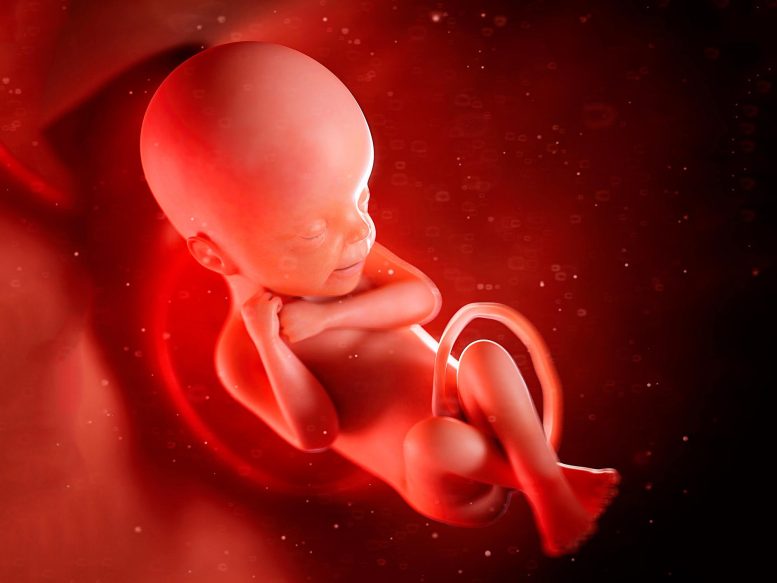
Low birth weight is a term used to describe babies who are born weighing less than 5 pounds, 8 ounces (2500 grams). This can be caused by a variety of factors, such as premature birth, poor maternal nutrition, or certain health conditions of the mother. Babies with low birth weight may face a higher risk of health complications and developmental delays, making it important to closely monitor their growth and development.
According to researchers, having multiple births, a short gap between pregnancies, and a maternal physical or mental health condition increase the likelihood of giving birth to a baby with a low birth weight.
Swansea University researchers have found that having multiple births, a short gap between pregnancies, and a maternal physical or mental health condition increase the likelihood of giving birth to a baby with a low birth weight.
Each year, approximately 20 million children are born with a birth weight below 2,500 grams (5 pounds, 8 ounces), which classifies them as low birth weight (LBW) babies. In an effort to allocate resources and interventions more effectively, researchers at the National Centre for Population Health and Wellbeing Research conducted a study to identify the risk factors associated with LBW.
The cohort study comprised 693,377 children born in Wales between 1st January 1998 and 31st December 2018. Participants were selected from the National Community Child Health database.
The research team anonymously linked multiple routinely collected administrative datasets to gain a deeper understanding of the risk factors associated with LBW.
The research revealed mothers at the highest risk of having a low birth weight baby included:
- Those expecting more than one baby (twins, triplets, etc.);
- Those who with a pregnancy interval of less than one year; and,
- Those with maternal physical and mental health conditions, including diabetes, anemia, depression, severe mental illness, anxiety, and use of anti-depressant medication during pregnancy.
Additional risk factors included:
- Smoking;
- alcohol-related hospital admission;
- substance misuse;
- and evidence of domestic abuse; and,
- maternal age (35+), along with living in a deprived area.
This study suggests that the most important factors in reducing the risk of LBW include the following:
- Address multiple births (e.g., in assisted reproduction practices)
- Addressing factors associated with pre-term births (previous history of pre-term birth)
- Addressing maternal health, such as reducing smoking, investing in maternal mental health, addressing substance use (alcohol/drugs),
- Treating underlying health conditions (diabetes/anemia),
- And promoting pregnancy planning to give an adequate pregnancy interval and healthy weight of the mother, especially for those in deprived urban areas.
Lead researcher Amrita Bandyopadhyay said: “The most important risk factors include maternal factors such as smoking, maternal weight, substance misuse record, maternal age along with deprivation, pregnancy interval, and birth order of the child. Resources to reduce the prevalence of LBW should focus on improving maternal health, reducing pre-term births, increasing awareness of a sufficient pregnancy interval, and providing adequate support for mothers’ mental health and wellbeing.”
Professor Kieran Walshe, Director of Health and Care Research Wales, which funded the research, said: “This 20-year study provides valuable insight into the variety of risk factors that can lead to low birth weight. It is a powerful example of how researchers can use routinely collected data to help improve care for both mothers and babies without putting additional pressures on frontline healthcare professionals. The findings offer tangible recommendations about where to focus efforts to mitigate the incidence of low birth weight in newborns.”
Reference: “Weighting of risk factors for low birth weight: a linked routine data cohort study in Wales, UK” by Amrita Bandyopadhyay, Hope Jones, Michael Parker, Emily Marchant, Julie Evans, Charlotte Todd, Muhammad A Rahman, James Healy, Tint Lwin Win, Ben Rowe, Simon Moore, Angela Jones and Sinead Brophy, 10 February 2023, BMJ Open.
DOI: 10.1136/bmjopen-2022-063836
The study was funded by Public Health Wales.








Be the first to comment on "New Study Identifies 5 Key Factors That Can Reduce the Risk of Low Birth Weight"